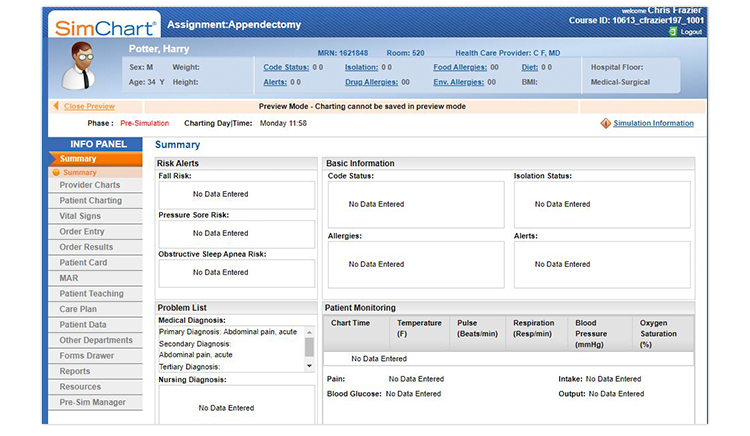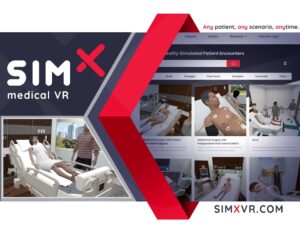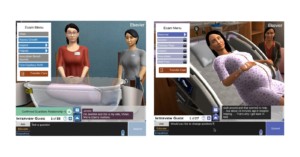Elsevier
Elsevier is a global information analytics business specializing in science and health. Elsevier partners with educators in higher education and healthcare simulation programs to help prepare learners to succeed in diverse healthcare training environments. For more than 135 years, Elsevier has allowed learners to practice and apply essential skills in controlled, monitored environments by providing medical simulation solutions with world-class content, innovative teaching and learning technology.
Elsevier’s simulation solutions are specifically tailored for nursing and medical assistance programs. These products are designed to help build critical thinking and clinical reasoning skills, giving learners the confidence and clinical competence they need to succeed in professional practice. They offer realistic, hands-on experience in controlled and monitored environments, while enhancing learners’ critical thinking and clinical judgment abilities.
To make learners and educators more aware of the medical simulation technology offered by Elsevier, the company’s solutions have been presented at a variety of medical simulation conferences, exhibitions and shows hosted by such organizations as SimGHOSTS, INACSL, ASPiH, SESAM, and the International Meeting for Simulation in Healthcare (IMSH) from the Society for Simulation in Healthcare (SSiH).
Sponsored Content:
Elsevier Healthcare Simulation Solutions
Using Elsevier’s simulation solutions platform, educators gain access to over 1,200 clinical skills across 10 disciplines, all in one consistent format. For example, Elsevier’s nursing skills solution provides learners with a consistent, 360-degree look at the most important nursing skills. Continually updated, evidence-based content is constantly reviewed and revised annually by clinical skills experts to reflect changes in practice as they arise.
In terms of instructor support, curriculum correlation guides show educators how to incorporate various skill activities into lesson plans. Performance Data then provides answers, with explanations included, for all skill competency tests. A grade book makes measuring learner performance simple.
At Elsevier Education, they work closely with educators to understand trends and challenges across disciplines and specialities. That’s why they are always working to provide healthcare educators with relevant resources and educational content that we can use in our classrooms.
Sponsored Content:
Virtual Clinical Excursions
One performance-measuring solution includes Virtual Clinical Excursions, online clinical scenarios that present learners with a virtual hospital environment. Within these scenarios, realistic patients and constantly-changing conditions simulate the routine and rigors of an average clinical rotation.
Elsevier’s SimPractice and Skills Checklists help challenge learners to practice performing real-world skills in a safe, monitored environment. These hands-on tools assist in strengthening their clinical competency and critical thinking abilities, while allowing them to track their overall progress.
Included with these skills checklists are after-action reports. At the end of each simulation, these reports will provide a patient outcome summary, detailing feedback on learner performance. Clear visual indicators identify where correct and incorrect actions were taken, and where there is room for improvement. Simulation educators can also access learner performance reports to easily track their trainees’ progress, and identify areas for remediation.

The Elsevier Skills Checklists are available for a variety of programs and provide clear, step-by-step instructions for common procedures in a digital, user-friendly format. Whether in the classroom, the Sim Lab, or the clinical environment, this easy-to-use online simulation product enables consistent tracking of learner performance and can be used as proof of program accreditation.
SimChart – Simulated EHR
SimChart for Nursing is an educational electronic health record (EHR) that introduces learners to digital charting. This technology, as well as the SimChart for the Medical Office, prepares them to properly document care in today’s modern clinical environment. This is accomplished by providing learners with a realistic, yet controlled way to master electronic charting, demonstrate clinical judgment in patient care, and thrive across healthcare facilities and institutions.
The SimChart for Nursing simulation solution can easily be incorporated into a clinical simulation curriculum, and comes with comprehensive educator support and flexible teaching tools. The product includes 70 prebuilt case studies that have been modeled after both common and unique patient cases. SimChart for Nursing adds more than 30 additional ready-to-use, multi-phased nursing simulation scenarios.
With complete customization, simulation educators can tailor SimChart to their specific needs by adding quiz questions and creating new patients in case studies. They can build and share their own single- or multi-phased nursing scenario simulations as well. Evaluation and reporting tools with detailed grading functionality can then be used to allow educators to view and comment on a learner’s work. This simulation debriefing technique can be completed at any point prior to grading, and provides the educator with convenient access to all assignments on a single screen.
Similarly, SimChart for the Medical Office is a unique, hands-on, medical office EHR that reinforces Accrediting Bureau of Health Education Schools (ABHES) and Commission on Accreditation of Allied Health Education Programs (CAAHEP) competencies in all of the charting and practice management tasks required of a modern medical office assistant.
The product is easy to integrate throughout an entire medical office program, as SimChart for the Medical Office provides a realistic learning environment with intuitive functionality that makes the tool easy to use for both educators and learners.
This simulation solution features prebuilt patient records and ready-to-use assignments written and developed by a panel of expert medical assistance and healthcare simulation educators and clinicians. SimChart for the Medical Office provides more than 100 interactive assignments mapped to ABHES and CAAHEP competencies, to additionally help ensure that learners are prepared for certification/licensing exams and have mastered the simulation skills that lead to greater success across healthcare environments.
Simulation Learning System (SLS)
Designed for use with human patient simulators, Elsevier’s Simulation Learning System (SLS) provides evidence-based scenarios, an electronic health record, and simulation support to help learners build clinical competence. This is achieved by maximizing the capabilities of human patient simulators and integrating simulations into nursing curricula with SLS. This tool is also easily incorporated into a simulation curriculum, and is another optimal way to provide learners with the hands-on practice they need to be successful.
Offering more than 200 evidence-based online simulation scenarios that correspond to Elsevier’s texts in core nursing disciplines, SLS has shown to provide comprehensive educator support across the entire simulation experience. Pre- and post-simulation activities reinforce learner comprehension and foster the development of essential critical thinking and clinical judgment skills.
Containing patient records for simulation scenarios and skill drills, SLS’s robust EHR platform helps learners become informed on how to properly document patient care. Adding to the comprehensive nature of this simulation product, SLS includes clear instructions and supporting resources to help educators conduct the most realistic simulations possible.
More About Elsevier
Since its inception, Elsevier’s goal has been to prepare today’s learners for successful healthcare careers. The company combines content with technology supported by operational efficiency, making information actionable and empowering knowledge. Headquartered in Maryland Heights, Missouri, Elsevier is always evolving and works closely with educators to understand trends and challenges across various disciplines and subspecialties.
All Elsevier products and services are designed to enhance learning and support all institutional goals, including those of clinical simulation centers. Elsevier’s education solutions deliver detailed data and insightful analytics for improving learner retention and to increase program outcomes. By helping develop the most capable and caring professionals, the company has become a trusted partner in the mission to improve healthcare.
To assist with continuing education, Elsevier offers insight via articles, white papers, and additional information on the latest developments in nursing and professional health education. Learners can also use the platform to improve training, with instant access to helpful product training tools, implementation tips, and other support resources.
In 2019, Elsevier acquired 3D4Medical, a global anatomy education company headquartered in Dublin, Ireland. The company’s mission is to transform medical learning and practice around the world with proprietary and ground-breaking 3D medical technology. 3D4Medical developed Complete Anatomy, an advanced 3D anatomy platform allowing educators and learners to better understand and interact with anatomy. The virtual anatomy solution has helped millions of users at more than 300 educational institutions. Learn more on the Elsevier website or read more of these articles below:
Elsevier Simulation Education Latest News

Global Healthcare Simulation News Update February 2024
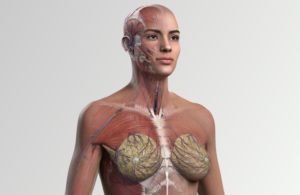
Elsevier Launches Complete Anatomy Full Female Model
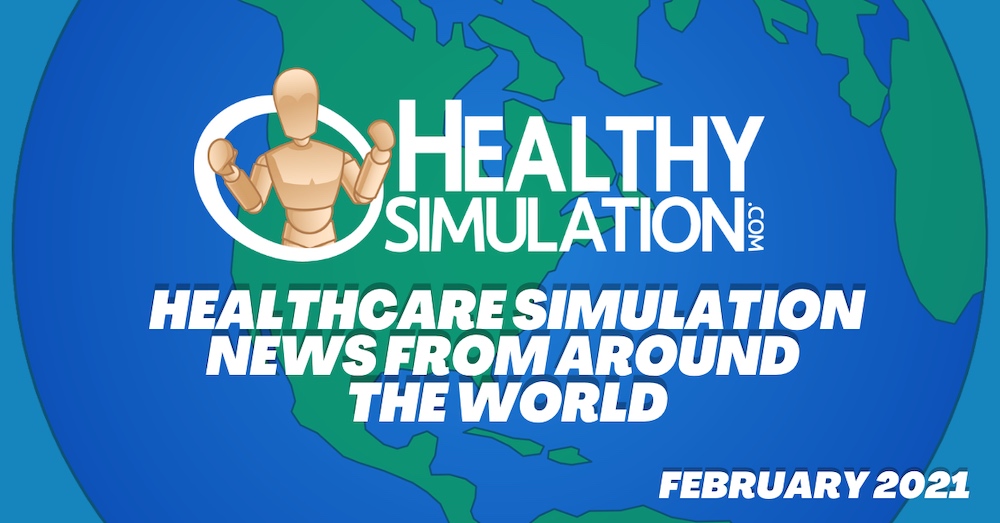
Latest Clinical Simulation News From Around the World | February 2021
Sponsored Content:



